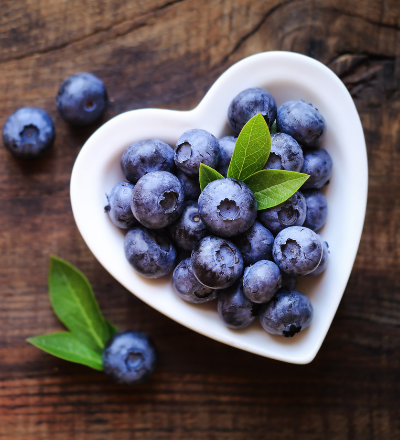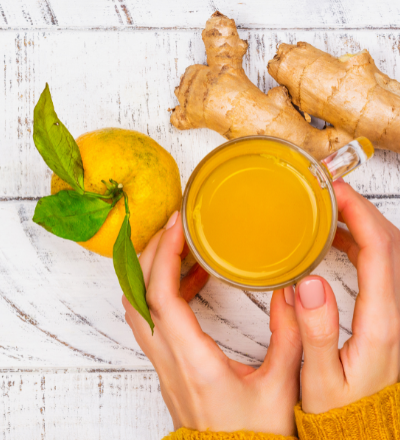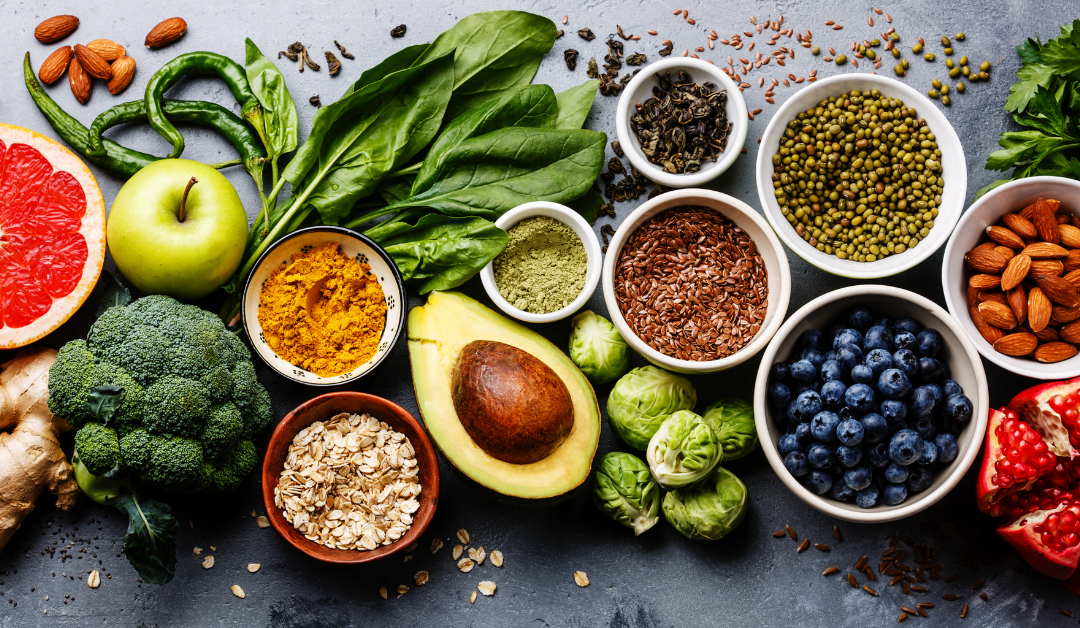To celebrate National Nutrition Week this week (11 – 17 October), we asked our Dietitian, Erin, to put together some helpful information on the link between Inflammation and Nutrition, and what healthy foods you can include to help with chronic inflammation.
Inflammation and Nutrition
Inflammation; is the body’s natural response to protect against injury, infection and disease and it involves several components of our immune system. Without inflammation, wounds and infections cannot heal. This type of inflammation is referred to as acute inflammation; in other words, it’s short-lived and useful in fighting infections and recovering from injury. It shows up as visible redness and swelling and with pain that you can feel.
However, chronic inflammation; the less useful cousin of acute inflammation is what we are referring to when we discuss it from a nutrition perspective. Chronic inflammation tends to stick around at a lower level for a long time, which can be detrimental to both physical and mental health. In this case, often the immune system perceives a threat that is not there, so it it’s on high alert all of the time. Chronic inflammation can be difficult to detect, often we find it via a blood test for inflammatory markers.
So if it’s invisible, why is it not good, you ask?
Well, chronic inflammation causes a progressive shift in the way your body uses its immune system. This can result in natural chemicals, known as pro-inflammatory cytokines, to be released, which encourage further inflammation. Chronic inflammation also increases the rate of blood clotting – a useful process for healing cuts, not so much when it’s present all the time!
The greatest concern around chronic inflammation is that it is associated with a range of health conditions, including heart disease, type 2 diabetes, inflammatory bowel disease, some cancers and even mental health issues such as depression.
What causes chronic inflammation?
There is no one cause, however it has been linked to viruses, pathogens, autoimmune disorders such as rheumatoid arthritis, pollution and smoking.
An important link to chronic inflammation is sleep! Often a missing “piece of the puzzle” for many people. Poor sleep can disrupt the body’s natural rhythms, and even alter the gut microbiome (gut bacteria).
Finally, a poor diet, that is the typical “Western diet” that is high in highly processed convenience foods and large quantities of added sugar, while simultaneously being low in whole plant foods has been associated with chronic inflammation.


What can you do to prevent or manage chronic inflammation?
Health behaviours, also known as diet and lifestyle choices are closely linked to the management of inflammation. This means getting enough sleep, moving your body regularly and consuming a varied, balanced diet.
When I say varied and balanced, I mean consuming a diet high in vegetables, fruits, legumes, wholegrains and focusing on unsaturated “healthy” fats over saturated animal fats.
Why are these foods in particular favourable?
Plant foods, as mentioned above, are all high in fibre. Fibre is not just great for keeping your bowels regular! It is also the preferred fuel of the beneficial bacteria that live in your gut, we refer to these bacteria as the microbiome. It’s a colony of many different bugs, each of which have different roles in the body. Some will encourage your body toward chronic inflammation, and others will do the opposite and encourage the body to calm the inflammatory response down.
Consuming a diet low in wholefoods and excessive in highly processed foods tends to provide fuel for non-beneficial bacteria related to inflammation. However, on the flipside, consuming plenty of high fibre plant foods feeds the beneficial bacteria, who then ferment the food to produce butyric acid. Butyric acid is very useful, as it helps calm inflammatory responses down and reduce inflammatory markers in the bloodstream. Butyric acid also improves your gut’s ability to defend the body from inflammation triggers.
Consuming foods high in fibre that feed the beneficial bacteria means they can multiply and grow, thereby outnumbering the gut-damaging bacteria. This is why gut health has become so popular recently; we know that eating a wide variety of plant foods ensures that different bacteria thrive in your gut, and they in turn will reduce the risk of chronic inflammation.
What about dairy?
I’m mentioning this specifically, as I am often asked about dairy food and if it is inflammatory. The short answer is no, dairy foods do not cause inflammation. In fact, a systematic review of 52 research trials conducted in 2017 found that dairy actually has a significant anti-inflammatory action! Dairy contains a range of bioactive compounds that have an anti-inflammatory role, particularly fermented dairy foods such as yoghurt and kefir as they contain probiotic bacteria.
The only people who should avoid dairy are those with dairy protein allergies (this does not refer to lactose intolerant people as there are many lactose-free dairy options available in supermarkets now!), those who don’t like dairy foods, or those who have ethical issues with its consumption.

What about other foods?
There is an absolute abundance of misinformation online about avoiding certain foods because they have a ‘pro-inflammatory’ effect. The evidence is simply not there to blame any specific food for causing chronic inflammation. Meat, eggs, dairy and gluten all get a bad reputation in the ‘wellness’ industry, however, all of these foods can be included in a healthy dietary pattern.
There are, however, foods with some evidence for reducing inflammation. These include
- turmeric due to it containing the compound curcumin
- blueberries as they are rich in a compound called anthocyanins
- ginger – antioxidants
- black and green tea – contain polyphenols
- dark chocolate – contains antioxidants and flavanols
- fish as it contains omega-3 unsaturated fats



It is important to note, however, that most of the research that forms that evidence base is laboratory-based as opposed to research based on actual people. This means effects vary and we don’t yet have specific dosage recommendations
The bottom line?
Current evidence is only really reliable for the PATTERN of your diet, rather than specific foods. That is, the “typical Western diet” is associated with more inflammation, whereas a more wholefood diet rich in plants and unsaturated fats is associated with less inflammation.
Taking an extreme approach and removing whole food groups is problematic from a health perspective, as well as completely unsustainable.
Make an Appointment with Erin Brealey, Dietitian
If you would like to book an appointment with Erin, please call the clinic on 3869 1099 or book online . She also offers a free 15 min introductory phone call if you’d prefer.
References:
https://www.tandfonline.com/doi/full/10.1080/10408398.2014.967385
https://pubmed.ncbi.nlm.nih.gov/25641952/
https://pubmed.ncbi.nlm.nih.gov/30854594/


